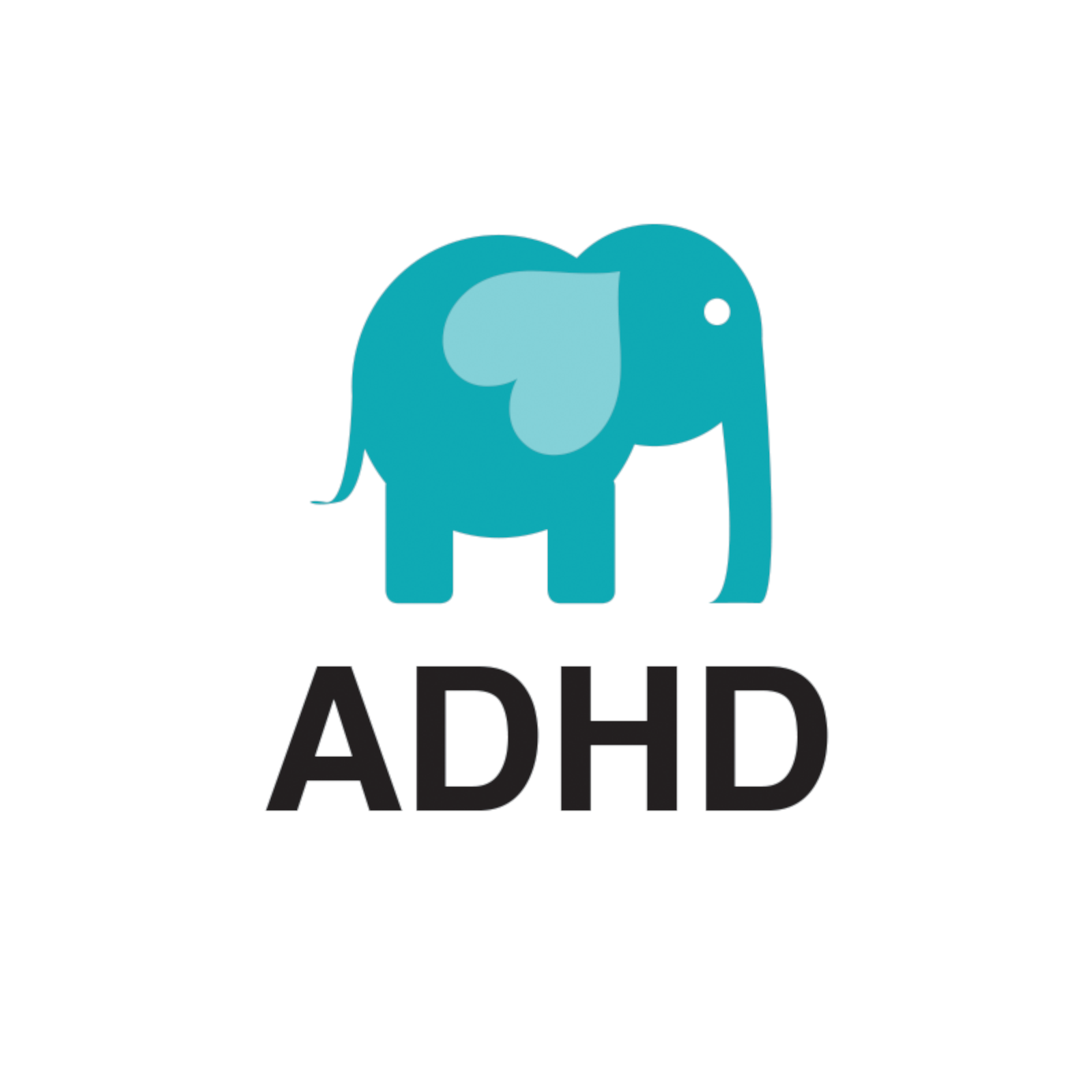
809.3K
Downloads
213
Episodes
Drawing on years of experience working with families, Parenting Coaches Siope Kinikini and Kimber Petersen share how families can improve, heal, and find success using the proven methods of the Teaching-Family Model. Visit smarterparenting.com to learn more.
Episodes
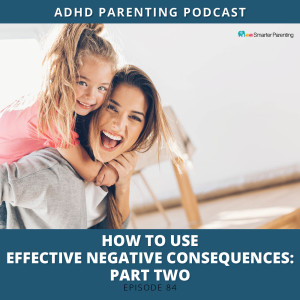
Wednesday May 20, 2020
Ep #84: How to use Effective Negative Consequences: Part 2
Wednesday May 20, 2020
Wednesday May 20, 2020
Struggling with giving consequences? Join the Smarter Parenting Club.
https://club.smarterparenting.com/
Parents often give a lot of consequences, but consequences are not always the best way to change behavior.
While consequences have their place, there are limitations to the effectiveness of consequences to change a child’s behavior. In today’s podcast, ADHD Parenting Coach Siope Kinikini shares with parents what those limitations are and what they can do instead.
If parents only use consequences, it could create this environment where they internalize the negative behavior and believe that the reason they are getting all these consequences is because they are bad.
The best way to create long-last change is to focus on the positive things that your child is doing by creating an environment where we can recognize kids for what they do well and reward them when they do. For many parents, this is a mind-shift that takes some getting used too, but creating an environment where you have more positive interactions than negative with your kids will strengthen your relationship and create a happier home environment. Focusing on positives helps a child reach their full potential.
Giving kids rewards and consequences isn’t a one-size-fits-all approach. Children learn at different rates, and what works for one child will not work for others. It’s okay to switch up the rewards or consequences to fit your child and their needs.
Figuring out what behavior we can reward our children for and what action needs a consequence can be tricky. We encourage you to sign up for a free Parenting Coaching session where we can help you work through your specific situation and individual needs.
Our coaching sessions will help you get to where you want to be faster as they show parents exactly what to do. If you’re ready to move your family forward, join the Smarter Parenting Club. https://club.smarterparenting.com/
For full show notes and transcript visit: https://www.smarterparenting.com/adhd-parenting-podcast/
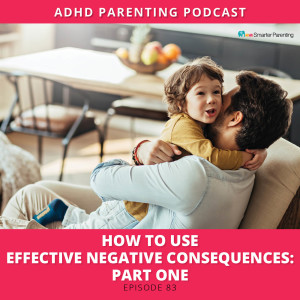
Tuesday May 12, 2020
Ep #83: How to use Effective Negative Consequences: Part 1
Tuesday May 12, 2020
Tuesday May 12, 2020
Join the Smarter Parenting Club and let our expert show you how to change behavior. https://club.smarterparenting.com/
When a child is acting up, parents want to know how to give a consequence that works. But, usually, what they want to know is how do they provide a punishment that will stop the behavior. There is a difference between consequences and punishments. Punishments are meant to scare a child into doing what you want, while consequences are meant to help a child make better choices.
Learning how to give consequences that reduce a child’s behavior doesn’t always come easy. The reason that the consequences don’t work is that parents don’t understand how consequences can be used to help a child make a better choice, and so give consequences that don’t matter to a child. Consequences work when they show a child what they gain by reducing the behavior.
Five proven elements make consequences work. If a consequence isn’t working to reduce a child’s negative behavior, it’s because one of the elements isn’t working and needs to be modified. The skill of Effective Negative Consequences shows what those five elements are and how parents can use them to find success to change behavior.
The five elements of Effective Negative Consequences are:
- Immediate
- Degree/size
- Consistent
- Important
- Varied
In this episode, ADHD Parenting Coach Siope Kinikini, shows parents that when they can use the five elements of Effective Negative Consequences, they will find success in helping their child make positive changes.
Our coaching sessions will help you get to where you want to be faster as they show parents exactly what to do. If you’re ready to move your family forward, join the Smarter Parenting Club. https://club.smarterparenting.com/
For full show notes and transcript visit: https://www.smarterparenting.com/adhd-parenting-podcast/
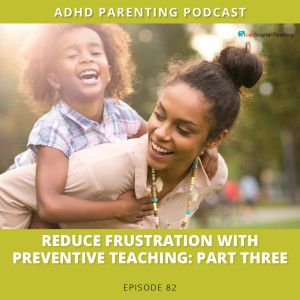
Wednesday May 06, 2020
Ep #82: Reduce frustration with Preventive Teaching: Part 3
Wednesday May 06, 2020
Wednesday May 06, 2020
Join the Smarter Parenting Club and learn how Preventive Teaching can help you find more clarity and time while reducing stress and frustration.
https://club.smarterparenting.com/
Parents only have so much time and energy in a day. Preventive Teaching helps parents use their time and energy wisely instead of spending it addressing and fixing problems. This keeps parents from feeling overwhelmed and frustrated.
When parents use the behavior skill of Preventive Teaching, they can address problems before they become bigger—the bigger the problem the more energy required to deal with it. By addressing them before they get out of hand, parents have the energy to spend on things that enrich and rejuvenate them; activities such as reading a book, meeting up with friends, going for a walk, exercising, or watching TV.
When parents aren’t spending their time dealing with negative behaviors, they can channel that energy into building a stronger relationship with their child, which is incredible. Instead of fights over homework or chores, you’re able to spend that time talking, playing a game together, going for a walk, what will that do for your family?
We can tell you what it will do. It will increase cooperation, understanding, empathy, and trust. Your child will start to see that you have their best interest at heart and that you are there to help them be better. They will see you as an ally and not as a foe.
We love Preventive Teaching for what it gives parents. By making small changes and addressing problems before they start, you and your kids will gain so much.
If you haven't listened to episodes 80 and 81, we recommend you do as they will help you understand what you will gain from using Preventive Teaching.
If you’re ready to move your family forward, join the Smarter Parenting Club. https://club.smarterparenting.com/
For full show notes and transcript visit: https://www.smarterparenting.com/adhd-parenting-podcast/
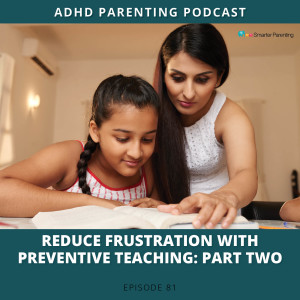
Wednesday Apr 29, 2020
Ep #81: Reduce frustration with Preventive Teaching: Part 2
Wednesday Apr 29, 2020
Wednesday Apr 29, 2020
Let ADHD Parenting Coach Siope Kinikini help you be the parent you want to be. Join the Smarter Parenting Club.
https://club.smarterparenting.com/
The behavior skill of Preventive Teaching isn’t just for kids; they are FAMILY skills.
In part two of our Preventive Teaching journey with Dawn, ADHD Parenting Coach Siope Kinikini teaches how behavior skills are just as powerful when parents apply them to themselves. That’s the strength of the behavior skills of the Teaching-Family Model. The behavior skills can be applied to kids; the behavior skills can be applied to adults. It doesn’t matter. They will work.
The goal of Preventive Teaching is to help prepare us for situations that may arise. If we do the prep work before we cook, or paint, or pack for a vacation, the actual cooking, painting, and packing are easier.
In Dawn’s case, Preventive Teaching helped her deal with a self-soothing behavior from her son that annoyed her and lead to decreased patience and increased frustration.
Because the self-soothing behavior wasn’t going to go away, Dawn needed ways to prevent her reaction to it. She didn’t want to be this parent who was frustrated and upset every time the behavior happened. With guidance from Siope Kinikini, she implemented strategies that allowed her to remain focused and calm when the behavior was happening.
Implementing Preventive Teaching helped her be a better parent. It helped her be the parent she wanted to be.
Admitting that we need help because our children’s behaviors are beyond our abilities doesn’t mean that we are a bad parent or that we don’t love them. Understanding that you need help is a sign of just how much you do love your children. When we are in the thick of a parenting struggle, it can be hard to see solutions or improvements. We need someone else to offer us guidance and reassurance. That’s what a Parenting Coach does. From their unique position outside of the problem, they can guide you. They help you see what needs to change and gives you to behavior skills you to make the change happen. They will encourage you when it gets tough or overwhelming. They are your ally in parenting. They want you and your family to improve!
Parenting Coaching helps parents set goals for their specific needs and situations. It is very individualized and customized to your family.
It can be scary to admit that you need help, and we applaud parents who do. These coaching sessions will help you get to where you want to be faster. They will remove the trial and error that can be frustrating and exhausting. If you’re ready to move your family forward, join the Smarter Parenting club. https://club.smarterparenting.com/
For full show notes and transcript visit: https://www.smarterparenting.com/adhd-parenting-podcast/
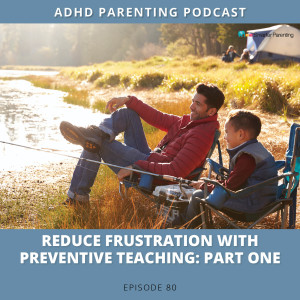
Wednesday Apr 22, 2020
Ep #80: Reduce frustration with Preventive Teaching: Part 1
Wednesday Apr 22, 2020
Wednesday Apr 22, 2020
Let us help you take Preventive Teaching to the next level. Join the Smarter Parenting Club.
https://club.smarterparenting.com/
Do you feel frustrated with your child’s behavior? Do you find yourself reacting to situations in a way where you feel like you’re a terrible parent? Do you wish there was a better way that would help you be the parent you want to be?
The magic tool is the Teaching-Family Model. The Teaching-Family Model has incredible power to show you how to become the parent you want to be!
When parents have skills and tools, they can be proactive instead of reactive. When a parent is proactive, they are in charge and can guide their child’s behavior. When a parent is reactive, the child is actually in charge, and we’re just reacting to their behavior. When we are proactive, we can reduce feelings of frustration. We can spend less time dealing with problems. We can help our kids successfully navigate the world. We can put our time and energy into strengthening relationships.
For parents who are always feeling frustrated, Preventive Teaching is life-saver.
Parents can regain control. Preventive Teaching helps families prevent problems before they arise as it allows parents to teach expectations in a way a child understands.
This idea is so important. Many parents believe that children should know how to act how they want them to act. Spoiler alert; They don’t. Children need to be taught and they need to be taught at their level.
At their level means keeping it doable for them. It means breaking it down into steps and practicing with them until they can do it before adding more steps. Our goal is to help them find success.
By teaching what it is we want, and then making sure they can do what it is we want, parents can reduce the majority of the problems they face.
Preventive Teaching is used on behaviors both big and small. While Preventive Teaching requires work at the beginning, the payoff is less work down the road.
In today’s episode, ADHD Parenting Coach Siope Kinikini shows parents how to reduce those feelings of frustration by making meaningful changes in how they teach their children. There’s no better time than now to become a proactive parent instead of a reactive parent. Doing so will change the trajectory of your family.
For full transcript and show notes visit: https://www.smarterparenting.com/adhd-parenting-podcast/
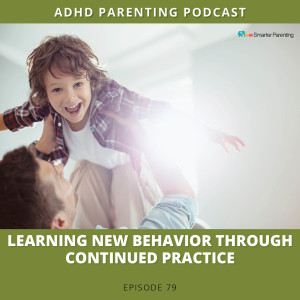
Wednesday Apr 15, 2020
Ep #79: Learning new behavior through continued practice
Wednesday Apr 15, 2020
Wednesday Apr 15, 2020
Let us guide you on how to make Role-playing effective for your family. Join the Smarter Parenting Club!
https://club.smarterparenting.com/
If you want a behavior to stick, you have to Role-play again and again until that behavior becomes ingrained in your child. While the idea of Role-playing continually may sound overwhelming, we can promise that doing it will pay off huge for your child.
Role-playing helps your child transition ideas from the abstract to the concrete. It moves them from just hearing something to understanding something.
Cued practice allows you to see if your child can apply what they have practiced in real life. Cued practice is when you tell your child you will be practicing at a later time to see how much they understand. It takes a lot of practice to change behavior and your child may struggle in the cued practices. That’s to be expected. Praise them for what they did well and then continue practicing. They will get it eventually.
Role-playing is so essential that it is used in every behavior skill taught on Smarter Parenting. We recommend getting a good handle on what Role-playing is and how you use it.
If you haven’t checked out the Role-playing skill lesson page, we advocate that you do. There you will find a video lesson that walks you through the steps as well as resources that will help you teach the skill to your child. The more comfortable you are with the behavior skill of Role-playing the easier it will be to teach your children how to Role-play.
https://www.smarterparenting.com/skills/role-playing/
ADHD Parenting Coach Siope Kinikini has discussed the importance of Role-playing in previous podcast episodes. We recommend listening to them again.
Ep #71: Changing the brain through Role-playing
Ep #48: What it takes to change behavior
Ep #13: Why practice leads to success
We know that Role-playing can feel awkward at times. Stick with it. It will get better and it will change your family. Start by Role-playing situations that are comfortable before moving up to more difficult situations.
We can’t stress enough how much power there is in Role-playing.
For full transcript and show notes visit: https://www.smarterparenting.com/adhd-parenting-podcast/
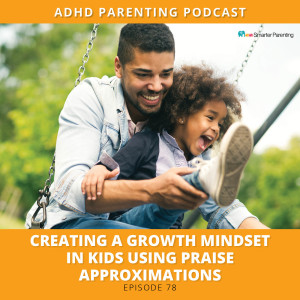
Wednesday Apr 08, 2020
Ep #78: Creating a growth mindset in kids using Praise Approximations
Wednesday Apr 08, 2020
Wednesday Apr 08, 2020
Creating a growth mindset for kids is one of the greatest things parents can teach their kids. A growth mindset is helping kids understand expectations while allowing them not to be perfect. Effective Praise helps parents do just that as it shows a child what they are doing well and why continuing that behavior would be beneficial to them.
Harnessing the power of praise isn’t just for when kids are doing it all right as parents’ expectations don’t always match their child’s ability. By using Praise Approximations, parents are able to meet them where they are at, which encourages kids to grow and learn even when they fall short of parents’ expectations.
Praise Approximations are especially helpful when kids are throwing a tantrum or feel overwhelmed as they help pull kids out of what is happening and gives them an off-ramp for their feelings.
Effective Praise, and Praise Expectations, are powerful tools to help teach our kids. We recommend listening to podcast #76,77 to learn more about how Effective Praise creates a growth mindset for kids.
Sign up for a free 15-minute mini-session: https://www.smarterparenting.com/coaching/
To learn more about Effective Praise visit: https://www.smarterparenting.com/skills/effective-praise/
For full show notes and transcript visit: https://www.smarterparenting.com/adhd-parenting-podcast/
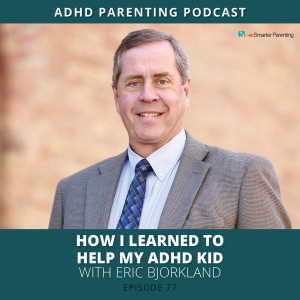
Wednesday Apr 01, 2020
Ep #77: How I learned to help my ADHD kid with Eric Bjorklund
Wednesday Apr 01, 2020
Wednesday Apr 01, 2020
As parents, we may love our child, but not always like them. We may think they are a “bad” kid who only does wrong. We may believe that the only way to change them is by punishing them.
While this type of thinking is common, it isn’t helpful and will end up doing incredible damage to our relationship with them.
We get that some children can be hard. They know how to push our buttons. Once we start seeing the bad in our children, it can be easy to continue to see all they are doing wrong.
Learning how to parent isn’t easy. The good news is that the behavior skills taught on Smarter Parenting have been proven to repair relationships.
In today’s podcast, Eric Bjorklund talks about how the skills of Smarter Parenting and the Teaching-Family Model changed how he parented and how those changes made an incredible difference in the relationship with his son.
Before Eric started using the skills of the Teaching-Family Model, he didn’t like his kid with ADHD. All he could see where the “bad” things his child was doing. He thought that he could make his child good by “punishing them.” What it was doing was creating barriers between him and his child, and he didn’t like where it was going.
By learning Effective Praise, he was able to see the good in his child. Once he started seeing the good, he started liking his child. That shift set his relationship with his child on a new and positive path.
You can come to learn to like your child!
If you need guidance on how to do it, reach out to Parenting Coach Siope Kinikini; he can show you how to turn around your relationships.
Sign up for a free 15-minute mini-session: https://www.smarterparenting.com/coaching/
To learn more about Effective Praise visit: https://www.smarterparenting.com/skills/effective-praise/
For full show notes and transcript visit: https://www.smarterparenting.com/adhd-parenting-podcast/
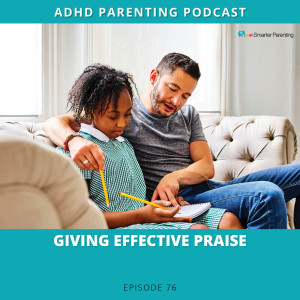
Wednesday Mar 25, 2020
Ep #76: Giving Effective Praise
Wednesday Mar 25, 2020
Wednesday Mar 25, 2020
Giving Effective Praise is one of the best things parents can do to improve behavior.
What is Effective Praise? Effective Praise is specific (not general) praise that allows a child to know exactly what they did well and a reason why they should continue that specific behavior.
An example of Effective Praise would be, “I am so proud of you for putting away your backpack. When you put away your backpack, I don’t have to interrupt your playtime to have you put it away.”
General praise, on the other hand, doesn’t help a child understand what they did well and why they should continue doing it. General praise sounds like “Good job.” “I’m proud of you!” “You did awesome.”
It can be challenging to switch from general praise to Effective Praise, but doing so will pay big dividends.
When you use Effective Praise, you are building self-esteem in kids as it gives them the confidence to continue to grow and learn. Effective Praise can be used for any positive behavior. Effective Praise can be especially helpful during a tantrum as it allows parents to focus on the positive and deescalate the situation.
Giving Effective Praise takes work to become natural. When it does, you will find yourself creating a stronger bond with your children.
Visit SmarterParenting.com for the Effective Praise lesson video: https://www.smarterparenting.com/skills/effective-praise/
For full show notes and transcript visit: https://www.smarterparenting.com/adhd-parenting-podcast/
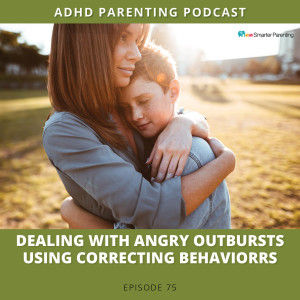
Wednesday Mar 18, 2020
Ep #75: Dealing with angry outbursts using Correcting Behaviors
Wednesday Mar 18, 2020
Wednesday Mar 18, 2020
Dealing with angry outbursts or tantrums can be frustrating and exhausting.
The skill of Correcting Behaviors helps parents respond to negative behavior in a way that keeps the problem from escalating.
Correcting Behaviors gives parents the steps they need to help their child understand what is happening and gives them a way to channel their anger or frustration.
Children have outbursts or tantrums because they are feeling large emotions and don’t know how to process them. Common emotions that lead to outbursts include being frustrated, worried, scared, tired, hungry, or overwhelmed.
An angry outburst or a tantrum is your child’s way of letting you know they need help to deal with their emotions. Instead of making the problem worse, using Correcting Behaviors gives a child an off-ramp for their behaviors and emotions.
The steps of Correcting Behavior are:
Get your child's attention
Express empathy
Describe the negative behavior
Deliver a consequence for that behavior
Describe what you want instead
Give a meaningful reason why they should do the new behavior
Role-play the new behavior until the child is comfortable
In this episode we walk through how to teach these steps to families. When making behavior changes most parents think that they’ll find the most success by focusing on changing their child. In reality, the greatest change happens when the parent first makes changes. By changing one part of the system (how a parent responds) the entire system changes.
Learning behavior skills isn’t a quick fix, but it is a lasting fix.
To learn the skill of Correcting Behaviors, visit: https://www.smarterparenting.com/skills/correcting-behaviors/
For full transcript and show notes visit: https://www.smarterparenting.com/adhd-parenting-podcast/
